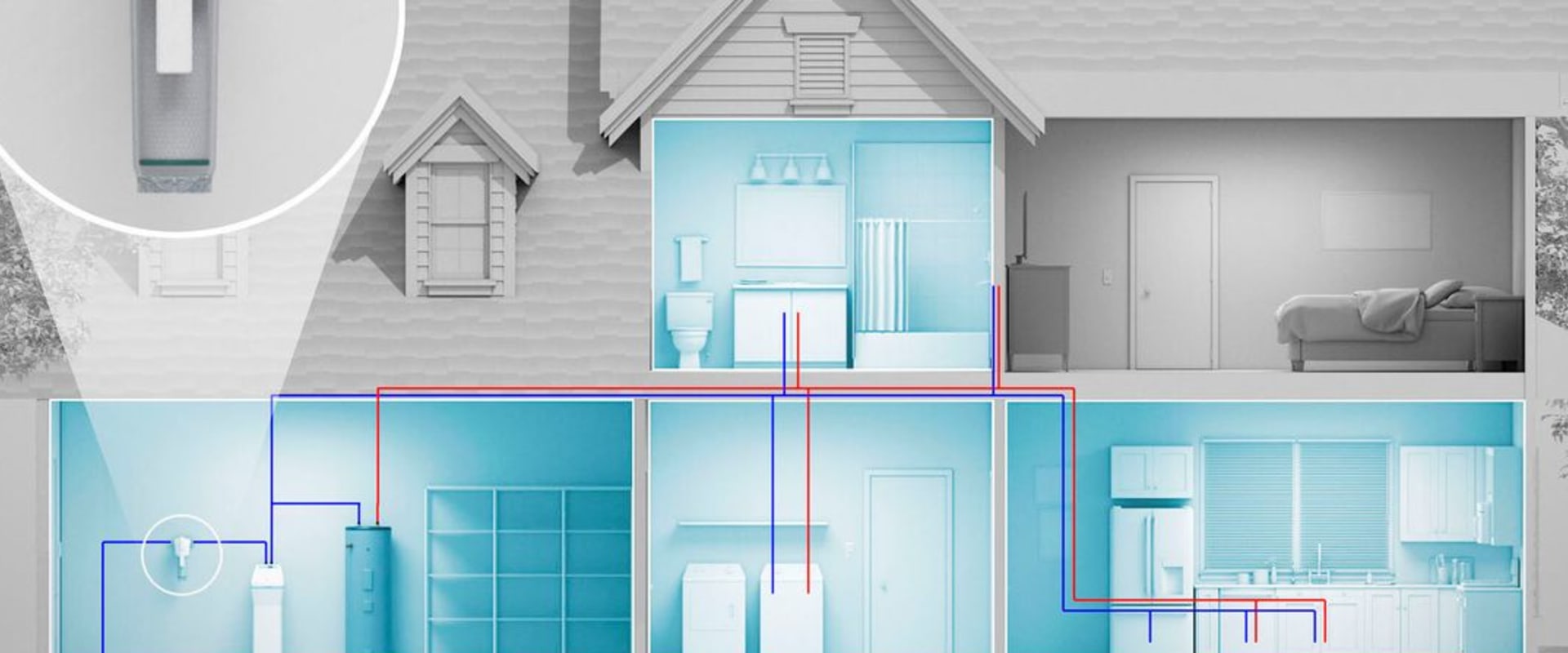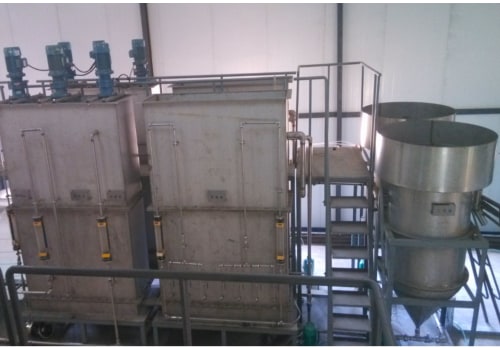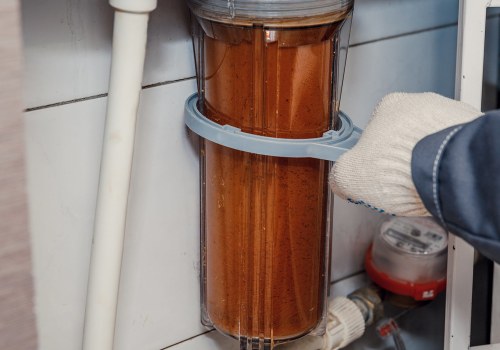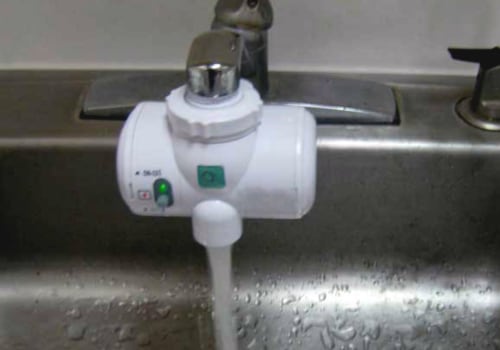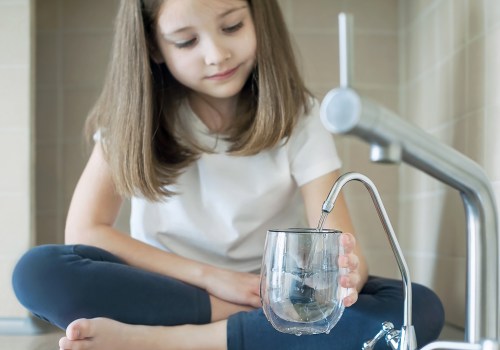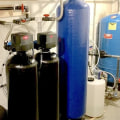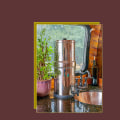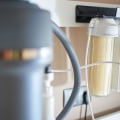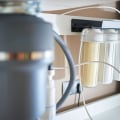Purifying Home Water: A Comprehensive Guide to Integrating Filters into Plumbing Systems
Are you tired of pouring money down the drain on bottled water? Imagine a world where clean and safe drinking water flows effortlessly from your tap. This dream can become a reality with the integration of water filters into your home plumbing system.
This overview will explore the importance of clean drinking water, the benefits of integrating water filters, the different filters available, the installation process, maintenance tips, additional considerations, and how to choose the right filter for your home plumbing system.
Get ready to quench your thirst for knowledge!
Key Takeaways
• UV filters are a popular and effective choice for home water purification systems.
• Regular maintenance, including cleaning the quartz sleeve and lamp, is essential for optimal performance.
• Installation of water filters in home plumbing systems can be done DIY for affordability or by professionals for warranty coverage and expertise.
• Regular maintenance of water filters includes cleaning or replacing filter cartridges, repairing or replacing damaged parts, and periodically flushing out sediment and debris.
Importance of Clean and Safe Drinking Water
Clean and safe drinking water is crucial for maintaining good health and well-being. Regular maintenance of your home plumbing system, including integrating water filters, is essential to ensure the cleanliness and safety of your drinking water.
Installing a water filter can effectively remove contaminants such as bacteria, viruses, heavy metals, and chemicals from your tap water. This helps to prevent various waterborne diseases, improve the taste and odor of the water, and protect your body from potential health risks.
Regular water filter maintenance also plays a significant role in ensuring clean and safe drinking water. It involves replacing filter cartridges at recommended intervals to maintain optimal filtration efficiency. Neglecting regular maintenance can reduce filtration performance and compromise drinking water quality.
Benefits of Integrating Water Filters into Home Plumbing Systems
You can enjoy a range of benefits when integrating water filters into your home plumbing system.
Firstly, these filters are highly effective in removing harmful contaminants from your tap water, ensuring that you and your family are protected from potential health risks.
Additionally, integrating water filters also improves the taste and odor of the water, providing you with a more enjoyable drinking experience.
Lastly, opting for this solution is cost-effective and eco-friendly, as it reduces the need for single-use plastic bottles and contributes to a more sustainable future.
Removal of harmful contaminants
Installing water filters in your home plumbing system can significantly reduce the presence of harmful contaminants. These filters employ various removal techniques to ensure clean and safe drinking water.
One common technique is activated carbon filtration, which removes organic compounds, chlorine, and other chemicals that pose health risks. Another technique is reverse osmosis, where water is forced through a semipermeable membrane to remove microscopic contaminants like bacteria and viruses. Ultrafiltration is also used, which utilizes a fine membrane to separate impurities from the water.
These filtration methods work together to provide water that meets high standards for purity and taste. Integrating these filters into your plumbing system lets you enjoy peace of mind knowing that your family's health is protected from potentially harmful substances in the water supply.
Improved taste and odor of water
The taste and odor of your water will be noticeably improved with these filters in your home plumbing system. Not only will you enjoy cleaner and fresher-tasting water, but you will also experience improved health benefits.
These filters are designed to remove impurities and contaminants that may affect the taste and smell of your water, such as chlorine, bacteria, and sediment. By eliminating these unwanted elements, the filtration system ensures that your water is pure and free from unpleasant odors or tastes.
This improvement in water quality leads to enhanced consumer satisfaction as you can now confidently drink and cook with clean, great-tasting water.
Invest in a reliable filtration system for your home plumbing to enjoy its numerous benefits in terms of improved taste, odor, health benefits, and overall satisfaction.
Cost-effective and eco-friendly solution
Using water filters in your home plumbing system has several benefits. Firstly, it is a cost-effective solution that improves the quality of your water. Using filters can save money by reducing the need to purchase bottled water. Filters also help extend the lifespan of appliances like coffee makers and dishwashers by preventing mineral buildup.
Secondly, integrating water filters into your plumbing system has positive environmental impacts. Filtering tap water decreases the amount of plastic waste generated from single-use water bottles, reducing pollution and conserving natural resources.
Lastly, water filters promote a healthier lifestyle. They remove contaminants like chlorine, lead, and bacteria that may be present in tap water. This ensures you and your family access clean and safe drinking water.
Types of Water Filters for Home Plumbing Systems
There are a few key options when choosing the right water filter for your home plumbing system.
Activated carbon filters are designed to remove impurities and contaminants from the water by adsorption, making them effective at removing chlorine, volatile organic compounds (VOCs), and some heavy metals.
Reverse osmosis filters use a semipermeable membrane to remove larger particles and molecules, providing an extra filtration layer for cleaner drinking water.
UV filters utilize ultraviolet light to disinfect the water by deactivating bacteria, viruses, and other microorganisms that may be present.
Activated carbon filters
Activated carbon filters have numerous health benefits and are commonly used in home plumbing systems. They can effectively remove impurities from water by adsorbing contaminants onto their surface. When water passes through the activated carbon filter, it undergoes adsorption, where the contaminants adhere to the filter's surface. This process helps remove chlorine, volatile organic compounds (VOCs), pesticides, and other harmful substances in the water supply.
Additionally, activated carbon filters improve taste and odor by reducing unpleasant smells and flavors caused by chemicals or bacteria. These filters are known for their versatility as they can be incorporated into various filtration systems, including under-sink filters, faucet-mounted filters, or whole-house filtration systems.
Integrating activated carbon filters into your home plumbing system is an effective way to ensure clean and healthy drinking water for you and your family.
Reverse osmosis filters
Now that you understand the benefits of activated carbon filters let's dive into another popular type of water filter: reverse osmosis filters.
Reverse osmosis is a highly effective filtration process that removes contaminants from your water by pushing it through a semipermeable membrane. This membrane has tiny pores that allow only water molecules to pass through, leaving impurities such as bacteria, viruses, and dissolved minerals behind.
One of the key benefits of reverse osmosis is its ability to produce clean and pure drinking water. Removing harmful substances like lead, chlorine, and pesticides ensures that every sip you take is safe and healthy.
Installing a reverse osmosis system in your home requires professional expertise due to its complex nature. It involves mounting the system under your sink or connecting it directly to your main plumbing line.
Corrective osmosis filters can provide high-quality drinking water for years with proper installation and maintenance.
UV filters
To ensure the safety of your drinking water, consider installing a UV filter that uses ultraviolet light to kill harmful bacteria and viruses. UV filters are a popular choice for home water purification systems due to their effectiveness and ease of use.
The installation process is relatively simple and can be done by following a few basic steps. First, determine the location for the filter in your plumbing system, preferably after any other filtration systems you may have.
Next, shut off the main water supply and cut the pipe where you want to install the filter. Connect the inlet and outlet ports of the UV filter using appropriate fittings or connectors. Finally, turn on the main water supply and check for any leaks.
Regular maintenance is essential to ensure the optimal performance of your UV filter. This includes periodic cleaning of the quartz sleeve and lamp and replacing them when necessary. Additionally, it's important to monitor the intensity of UV light emitted by regularly checking its level with a radiometer or similar device.
Installation Process for Water Filters in Home Plumbing Systems
Once you've gathered all the necessary tools and equipment, it's time to start installing the water filters in your home plumbing system. Here are the steps you need to follow for a successful installation:
1. Shut off the main water supply: Locate the shut-off valve and turn it off to prevent any water flow during installation.
2. Find an appropriate location: Choose a spot where you can easily access and maintain the filter. It should also be close to the main water supply line.
3. Connect the filter housing: Use a wrench to attach the filter housing to your plumbing system. Ensure that it is securely tightened.
Many homeowners opt for DIY installation due to its affordability when considering installation cost. However, the professional installation provides added benefits such as expertise and warranty coverage, making it a viable option for those who prefer convenience and peace of mind.
Maintenance of Water Filters in Home Plumbing Systems
Proper maintenance is essential for ensuring the optimal performance and longevity of your home plumbing system's water filters. Following these water filter maintenance tips can avoid common issues and keep your filters running smoothly.
First, regularly clean or replace your filter cartridges according to the manufacturer's instructions. This will prevent clogs and maintain water flow.
Additionally, check for any leaks or cracks in the filter housing and promptly repair or replace damaged parts.
It's also important to periodically flush out sediment and debris from the filter to maintain its effectiveness.
If you notice a decrease in water pressure or a change in taste or smell, it may indicate a need for maintenance or troubleshooting.
Refer to the manufacturer's guidelines or consult a professional plumber for assistance with more complex issues.
Additional Considerations for Water Filtration Systems
When considering a water filtration system, it's important to consider its effect on water pressure and flow rate. Some filters can restrict water flow, reducing pressure in faucets and showers.
Compatibility with existing plumbing fixtures should also be considered. This ensures seamless integration of the filtration system into your home's plumbing system.
Lastly, it's crucial to consider your area's specific water quality issues. Different filters target specific contaminants like chlorine, lead, or sediment.
Water pressure and flow rate
Water pressure and flow rate can be affected by various factors, such as pipe diameter and obstructions. When it comes to water pressure issues, low or inconsistent pressure can cause problems with your household appliances. Insufficient water pressure may lead to the slow filling of washing machines and dishwashers, resulting in longer cycle times. It can also affect shower performance, reducing water flow and making it difficult to rinse off soap or shampoo. Additionally, low water pressure can impact the effectiveness of sprinkler systems for watering gardens or lawns.
On the other hand, high water pressure can strain your appliances excessively, leading to leaks or even burst pipes. This increased stress on pipes and fittings can result in costly repairs and potential water damage to your home.
To ensure the proper functioning of household appliances and prevent unnecessary wear and tear on plumbing systems, it is crucial to maintain an optimal balance of water pressure throughout your home. Regularly monitoring the pressure levels and promptly addressing any issues will help you avoid potential problems.
Compatibility with existing plumbing fixtures
Now that you thoroughly understand water pressure and flow rate, it's time to explore another crucial aspect when integrating water filters into your home plumbing system: compatibility with existing plumbing fixtures.
When considering the installation of a water filter in older homes, it is important to assess the compatibility of your current plumbing setup. Older homes may have outdated pipes and fittings not designed to accommodate modern filtration systems. In such cases, potential plumbing modifications may be required to ensure proper installation and functionality.
This could involve replacing or upgrading certain components to meet the requirements of the new filter system. Consulting with a professional plumber will help determine the necessary modifications needed for seamless integration while ensuring optimal performance and longevity of your water filter system.
Considering the specific water quality issues in your area
It's important to consider your area's specific water quality issues when choosing a water filter. Water quality testing is crucial for understanding the contaminants present in your tap water, as well as their concentrations. Different regions may have varying levels of pollutants, such as bacteria, viruses, heavy metals, or chemicals that pose health risks. Conducting a comprehensive water quality test can help identify these potential hazards and guide you toward selecting an appropriate filtration system.
Health risks associated with poor water quality include gastrointestinal illnesses, skin problems, respiratory issues, and long-term health effects. By analyzing the results of your local water quality tests, you can determine which contaminants are most prevalent to prioritize their removal with a suitable filter mechanism.
Remember that not all filters are designed to address every type of contaminant effectively. Hence, choosing a water filter that specifically targets the pollutants in your area's drinking supply is essential. This way, you can ensure that you and your family can access clean and safe drinking water.
Choosing the Right Water Filter for Your Home Plumbing System
When deciding on the appropriate water filter for your home plumbing system, it's important to consider factors such as filtration methods and maintenance requirements.
Here are some key points to keep in mind:
• Filtration Method:
• Activated Carbon Filters: These filters use activated carbon to remove impurities like chlorine, sediment, and volatile organic compounds (VOCs).
• Reverse Osmosis Filters: This type of filter uses a semipermeable membrane to remove contaminants, including dissolved solids, heavy metals, and bacteria.
• Maintenance Requirements:
• Filter Replacement: Depending on the brand and model you choose, filters may need to be replaced every three months to 1 year.
• Installation Costs: Consider the initial cost of purchasing and installing the filter system. Some brands offer DIY installation options that can save you money.
Frequently Asked Questions
What is the average lifespan of a water filter in a home plumbing system?
The average lifespan of a water filter in a home plumbing system depends on the type and usage, ranging from 3 to 6 months. Regular maintenance, such as cleaning or replacing the filter cartridge, is necessary to ensure optimal performance and prolong lifespan.
Can water filters remove all types of contaminants from the water?
Water filters can effectively remove various types of contaminants from water. They are designed to target specific impurities like sediment, chlorine, bacteria, and heavy metals. However, not all filters can eliminate every contaminant, so it's important to choose the right one for your needs.
Are water filters compatible with all types of home plumbing systems?
Water filters can be installed in most home plumbing systems, providing numerous benefits. They effectively remove contaminants, improving water quality and taste. Regular maintenance is essential for optimal performance and longevity of the filter system.
Do water filters affect the water pressure in the plumbing system?
Water filters can affect water pressure in your plumbing system, but the impact is minimal. The benefits of using water filters, such as improving water quality and removing contaminants, outweigh any slight decrease in pressure.
How often should water filters be replaced or serviced?
Replacing and servicing water filters is such a joy! Clean them regularly according to the manufacturer's instructions to properly maintain them. When choosing a filter, consider your needs and ensure it meets industry standards. Enjoy your filtered water!
Earthwise Water Filters Phoenix
922 N Colorado Street, Gilbert AZ 85233
(602) 878-6160
